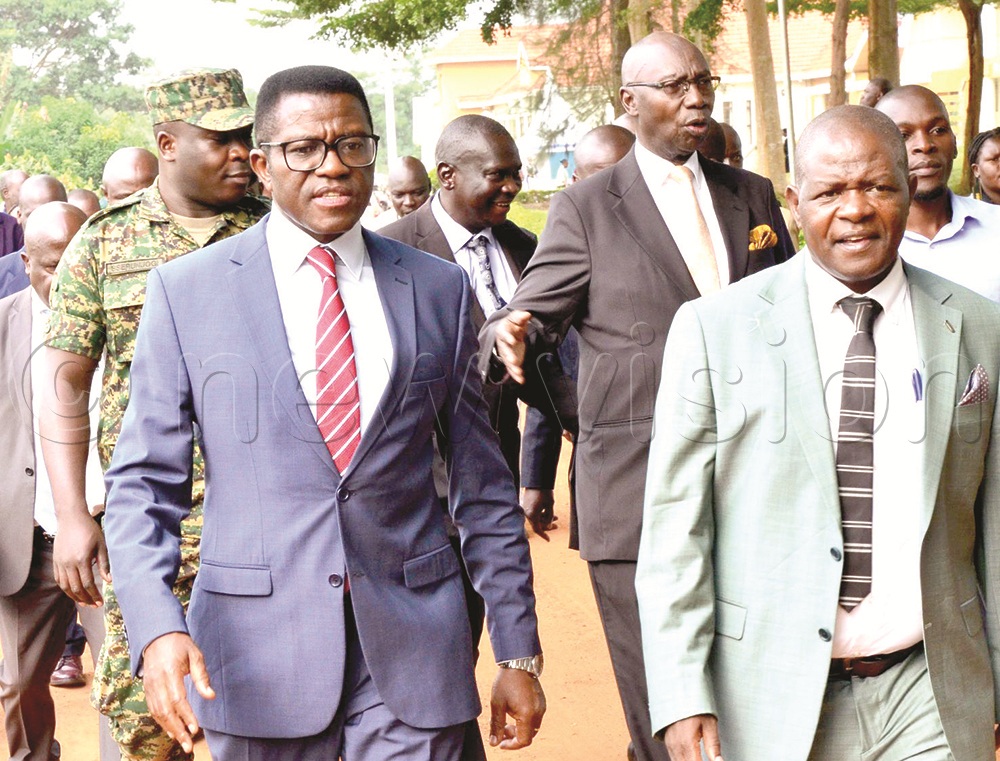Coffee-inspired nights redefine value chain
“Those nights changed everything. We saw coffee bringing together science, culture and community,” says Dr Geoffrey Arinaitwe, NaCORI’s executive director.
Encouraged by the growing interest, NaCORI introduced Coffee Spark, a campaign to ignite curiosity about coffee technologies. (File photos )
________________
It began with the Kituza Coffee Night at the National Coffee Research Institute (NaCORI) in Mukono district. What started as a casual evening of roasted meat, music, laughter, and steaming cups of coffee is sparking a movement.
“Those nights changed everything. We saw coffee bringing together science, culture and community,” says Dr Geoffrey Arinaitwe, NaCORI’s executive director.
The gatherings shifted perceptions. Coffee was no longer just a crop in the field; it became a beverage, a cultural symbol and a conversation starter.
Scientists, farmers and ordinary Ugandans began to appreciate the entire value chain, from seed to cup.
From coffee nights to urban coffee vibes
Building on that success, NaCORI launched Urban Coffee Vibes, a city-based event blending entertainment with education. Coffee cocktails, live performances and interactive learning drew in urban audiences.
“It was education disguised as fun — our way of awakening a coffee nation,” says Dr Arinaitwe.
Encouraged by the growing interest, NaCORI introduced Coffee Spark, a campaign to ignite curiosity about coffee technologies.
This evolved into the Coffee Fire Experience, a larger celebration fusing fashion, art and science. Models wore coffee-inspired outfits, musicians performed coffee-themed songs, and researchers showcased innovations.
The impact was immediate. Coffee began to be seen not just as an agricultural product, but as part of Uganda’s identity, culture and economic future.

Buganda Kingdom Katikirro Charles Peter Mayiga with Arinaitwe during a coffee engagement recently.
Farmers started asking deeper questions about seed varieties, drying techniques and market access. Research was finally reaching the people.
Taking science to the farmer
“Research and innovation mean nothing if they stay in laboratories. Our mission is to take science to the people. Knowledge is the true fertiliser for success,” Dr Arinaitwe emphasises.
This vision birthed the Coffee Genius Experience, a platform connecting farmers, researchers, and coffee lovers through learning and cultural exchange.
For farmers like Yekosefati Sekabembe from Mubende district, passion and land were not enough.
He struggled with poor varieties and coffee wilt disease until government-led training introduced him to good agricultural practices: seed selection, spacing, organic pest control and soil fertility management.
Today, his 25-acre plantation is a model of productivity, yielding high-quality beans that attract regional buyers.
His story reflects a broader transformation: smallholders becoming commercial producers through NaCORI’s practical training and innovation.
Aligning with the national vision
Uganda’s coffee renaissance aligns with President Yoweri Museveni’s 2017 directive to increase production to 20 million bags for export.
“The President’s vision is genius. You can’t talk about exporting processed coffee without increasing production. His directive covered everything — production, processing, research, seed multiplication, and market access,” notes Arinaitwe.
NaCORI is central to this roadmap, developing high-yielding varieties suited to different climatic zones and establishing regional sub-centres to bring research closer to farmers.
Blending research with creativity
In drought-prone regions, NaCORI promotes climate-smart coffee production that includes cultivating drought-resistant varieties, intercropping with shade trees and bananas and soil conservation.
“When you combine science, culture and music, people listen,” says Arinaitwe.
Farmers are now trained not only in agronomy but also in storytelling, turning coffee into a cultural expression. NaCORI also prioritises women’s participation.
Women are actively engaged in nurseries, quality control and value addition. This ensures they benefit equally through income generation and leadership in farmer groups.
Brewing the future
From the laughter-filled Kituza Coffee Nights to the science-driven Coffee Genius Experience, Uganda’s coffee story has evolved into a national movement.
What began as informal gatherings has grown into a renaissance blending research, culture, and creativity. With farmers empowered, women included and science reaching the grassroots, Uganda is not just producing coffee — it is brewing a legacy of resilience, pride and prosperity.
Farmers’ voices
The transformation is visible on the ground.
Monica Barigye Twinomujuni from Mubende:
“Before training, I did not know how to manage pests or prune my coffee trees. Now my harvests have tripled, and I can pay school fees and save for the future.”
Issa Ssemwogerere adds:
“NaCORI taught us soil care, resistant varieties, and organic manure use. We no longer fear drought or coffee wilt. Our community is motivated to expand coffee farming because we see real change in our earnings.”
Fact file
Uganda is home to some of the world’s finest coffee varieties. NaCORI developed the Kituza Robusta series (KR1–KR3) and is now testing KR11 and KR12, bred for resilience and high cup quality.
“We have global demand for our varieties, but we’re cautious. We don’t want to lose our genetic treasure,” Arinaitwe.
For farmers, these varieties promise higher yields, disease resistance, and better prices. For exporters, they offer a consistent supply of premium beans that meet international standards.